HOME >> CHINA
From emperor to brother
Source:Global Times Published: 2015-11-11 19:23:01
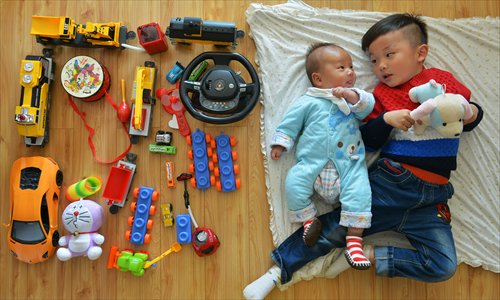
Ximu shares all his toys with his little brother. Photo: CFP
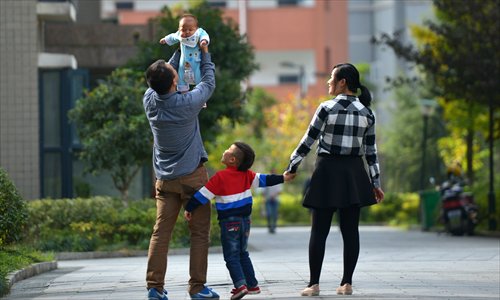
The Yang family walks in the garden of their compound. Photo: CFP
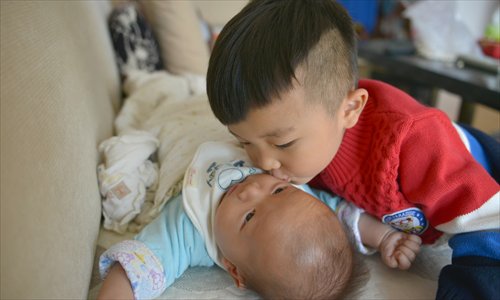
Every day, when he comes home from kindergarten, Ximu kisses his brother. Photo: CFP
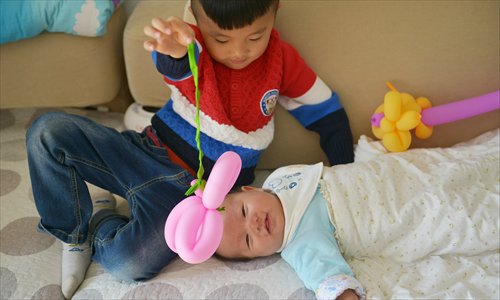
Ximu has had to learn how to share. Photo: CFP
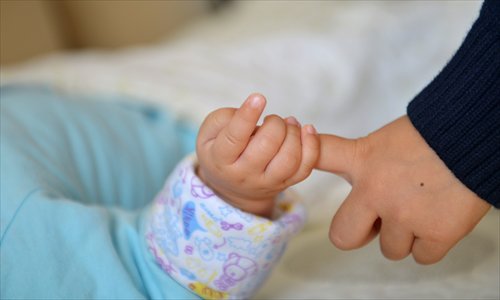
His little brother's small hand holds Ximu's finger. Photos: CFP
Yang Ling and Jiang Anqing were both born in the 1980s. Like most parents of their generation, they only thought they would ever have one child, 5-year-old son named Yang Ximu. In 2013, China adopted a "second child" policy for couples in which at least one partner is an only child. Yang and Jiang - who live in Guiyang, Guizhou Province - had dreamt about having a second child and they were now eligible. They wanted to give their son a sister.
"I can dress up my daughter like a Barbie doll, and daughters know how to take care of people," Jiang said.
In 2013, they decided to have a second child. The couple own their own home, a car and both have stable salaries so they decided that they could afford to raise two children. In addition, Yang's and Jiang's parents all said they were eager to look after a new baby, so the stage was set.
On July 27, the latest family member arrived. But the baby was a he, not a she. While the parents admitted to being a little disappointed, they were still excited.
"Brother" was a new word for Ximu. He has had to learn how to share his toys, food and his parents' love with his brother. Every day after kindergarten, Ximu comes home and plays with his brother. Ximu helps to cover his brother with a blanket and how to take care of people.
Watching how their son cares for his little brother, the couple has seen him transform from a "little emperor" into a "kind hearted brother." This is what they hoped having a second child would bring to their family.
According to official statistics released by the Guizhou provincial government, as of September, 5,865 couples have had second baby since 2013 due to the second child policy.
On October 29, the Communist Party of China Central Committee announced the abolishment of the decades-old one-child policy to allow all couples to have two children. This policy change is an attempt to balance population development and relieve the burden of an aging Chinese population. However, some Chinese experts said though the policy adjustment may increase the population, it won't cause a baby boom. Due to the costs of raising another child and changing social norms, many people are unwilling to have a second child.
Global Times
Posted in: In-Depth